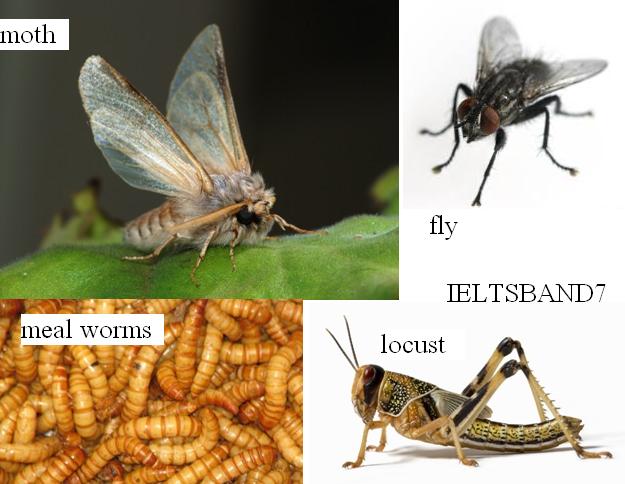Pest And Pollinators # Practice Reading
The European Food Safety Authority (EFSA) have recently published a report on using insects as a protein source for animal feed and human consumption. It found that edible (fit to be eaten as food) insects could contain biological (of or relating to the products and operations ofapplied biology) and chemical contaminants (something that contaminates (to make impure or unsuitable by contact or mixture with something unclean, bad, etc)), depending on how the large scale insect farms were managed.
With an estimated (to form an approximate judgment or opinion regarding the worth, amount, size, weight, etc.,of; calculate approximately) global population of 9 billion by 2050, using insects as a high quality source of protein as feed (for chickens, for example) could give a much needed food conversion rate (lower levels of initial energy and water required). Insect meat is also a quality source of fat, fibre, minerals and vitamins.
It is estimated that insects such as flies , moths, meal worms and crickets/locust
already form the diet of at least 2 billion people. There is still clearly a way to go until western cultures can adopt new foodstuffs (a substance used or capable of being used as nutriment) and a better understanding of the hazards (an unavoidable danger or risk, even though often foreseeable)of eating insects is required for the next step.
Source : http://pestsandpollinators.com/

